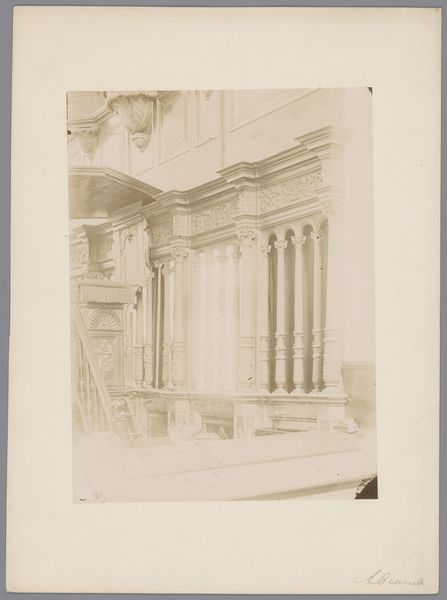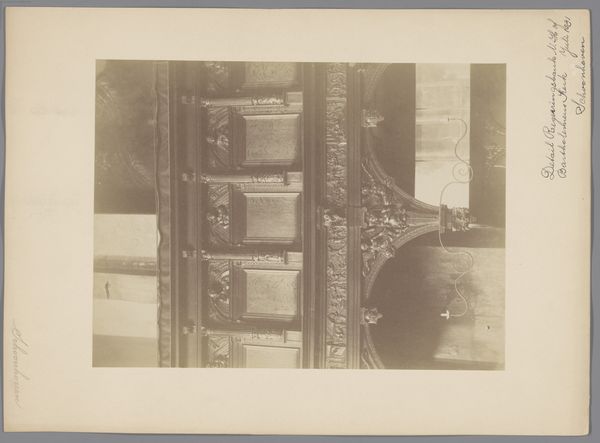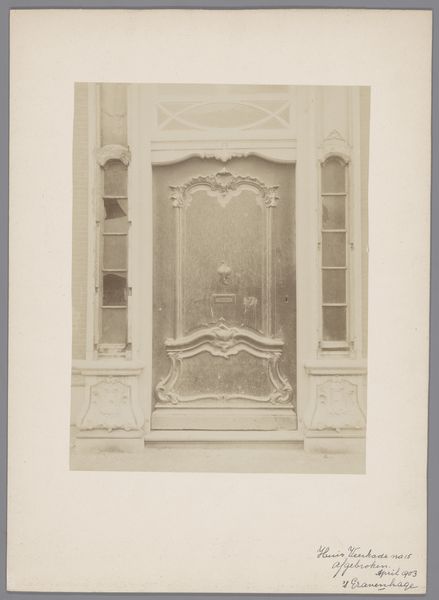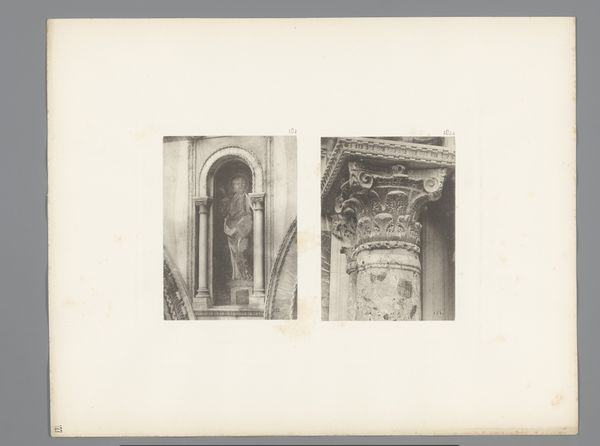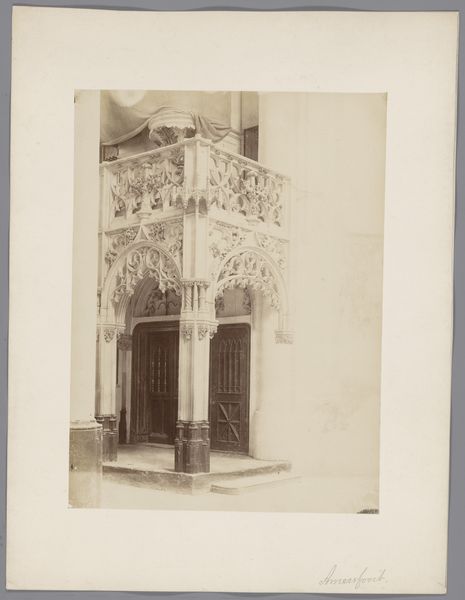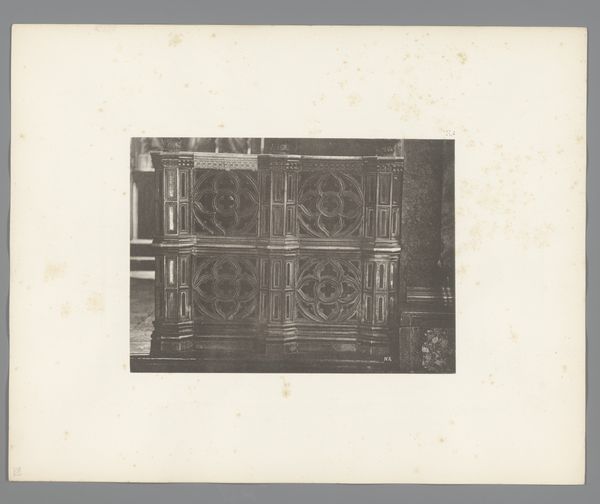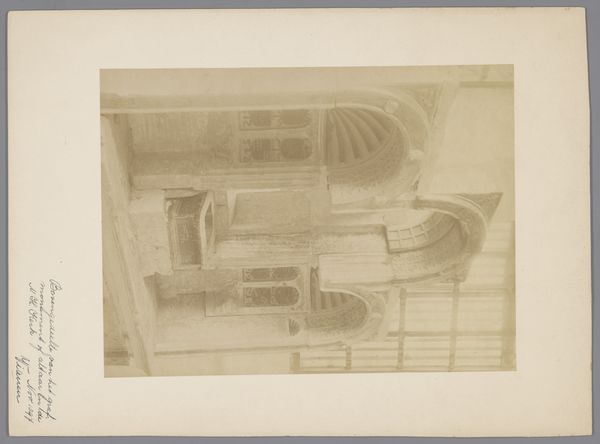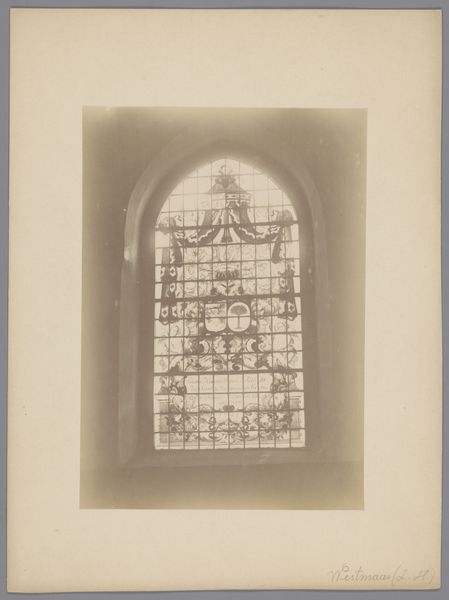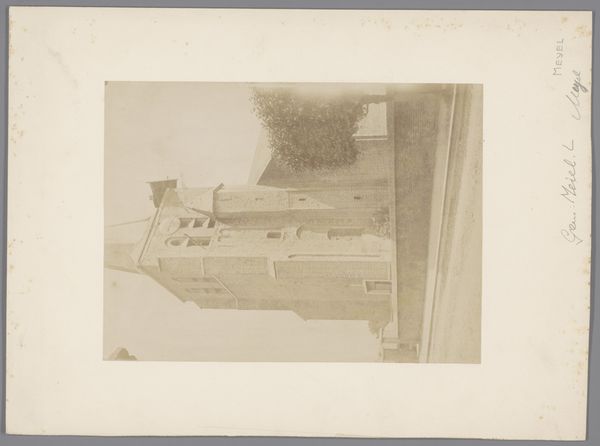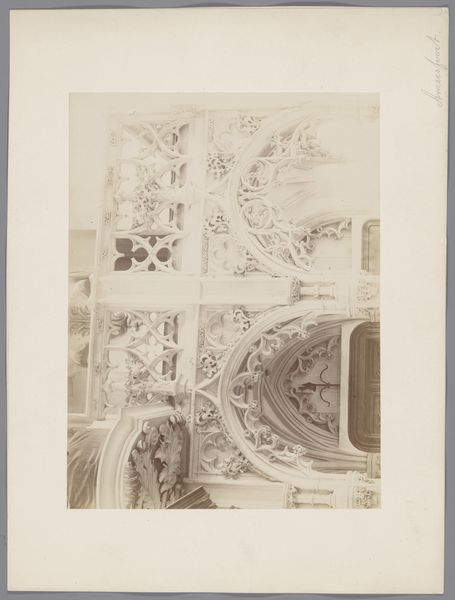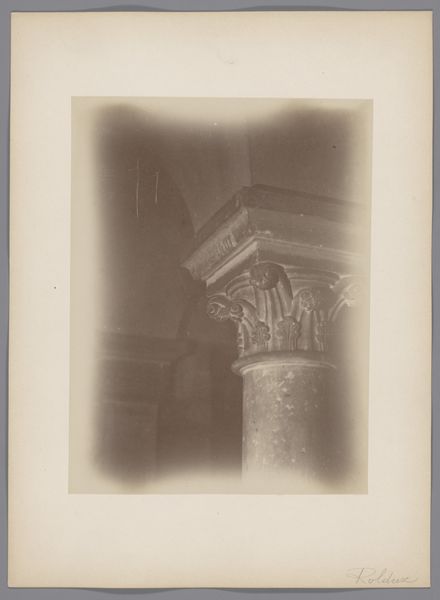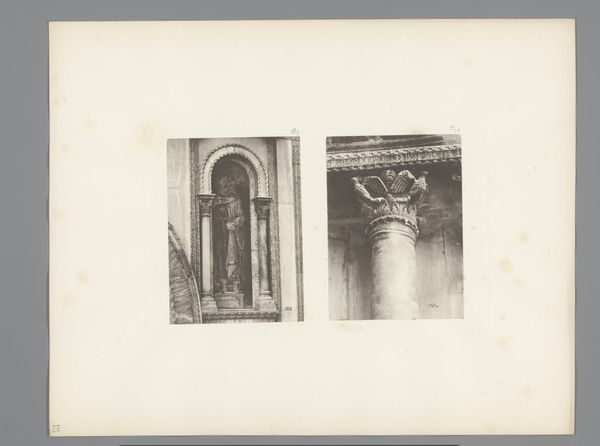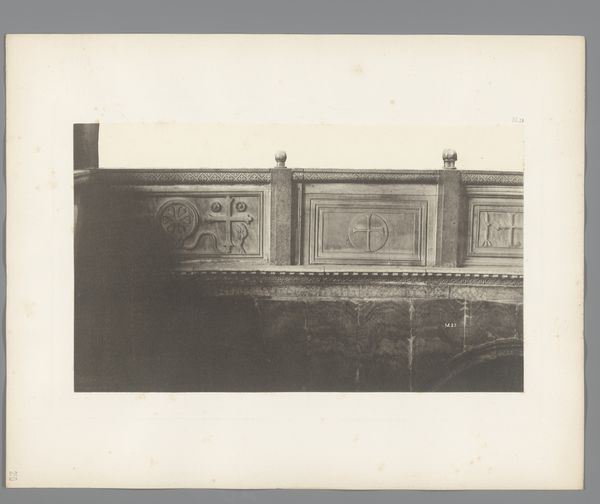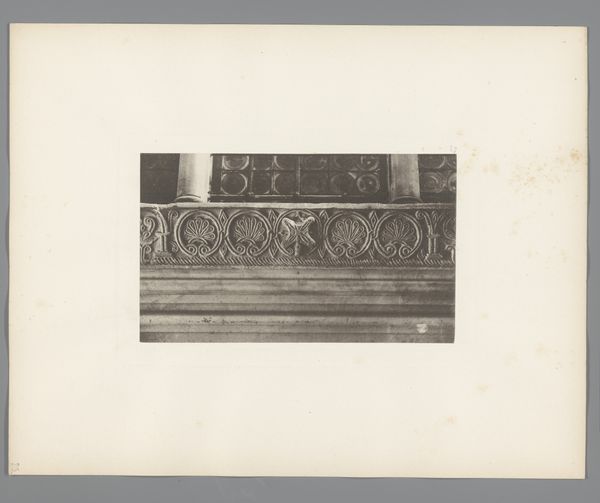
Dimensions: height 166 mm, width 240 mm
Copyright: Rijks Museum: Open Domain
These photographs capture the Grafmonument in de Dom van Utrecht, crafted by an anonymous maker, showcasing the artistry of stone carving. The stone, likely limestone or marble, dictates the monument’s presence, its density and grain influencing the depth and intricacy of the carved details. Skilled stonemasons employed techniques passed down through generations. Chisels, rasps, and drills were used to shape the stone, painstakingly transforming raw material into elaborate commemorative structures. The lettering, each precisely cut, adds another layer of texture to the surface. These monuments signify more than just remembrance. Their creation involved substantial labor, from quarrying the stone to its transportation and carving. Such projects provided employment but also reinforced the social hierarchy, immortalizing the elite while relying on the skills of often-unrecognized artisans. By considering the material, the making process, and the social context, we gain a richer appreciation of the Grafmonument, moving beyond conventional notions of art to encompass the full spectrum of craft, labor, and meaning embedded within it.
Comments
No comments
Be the first to comment and join the conversation on the ultimate creative platform.
